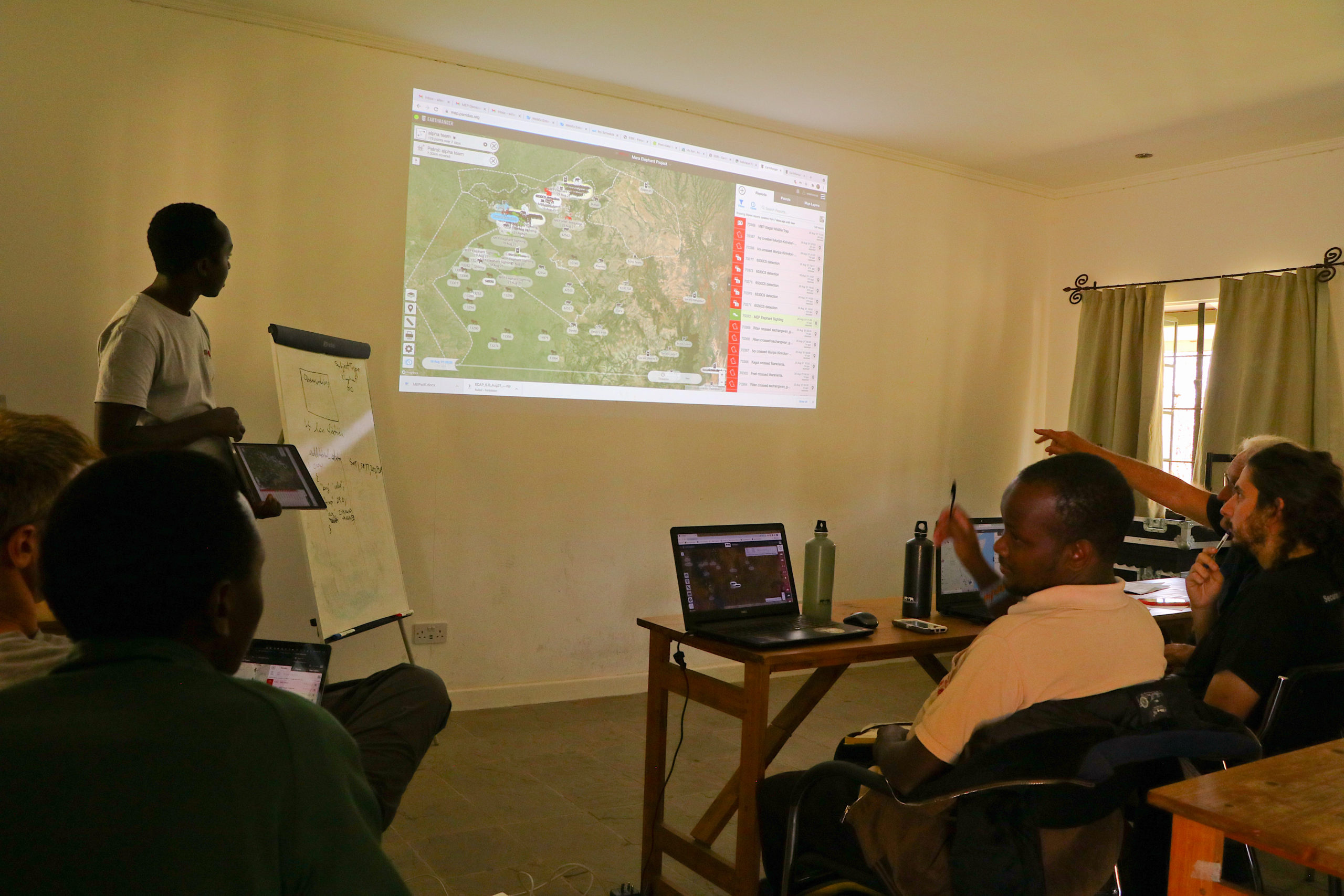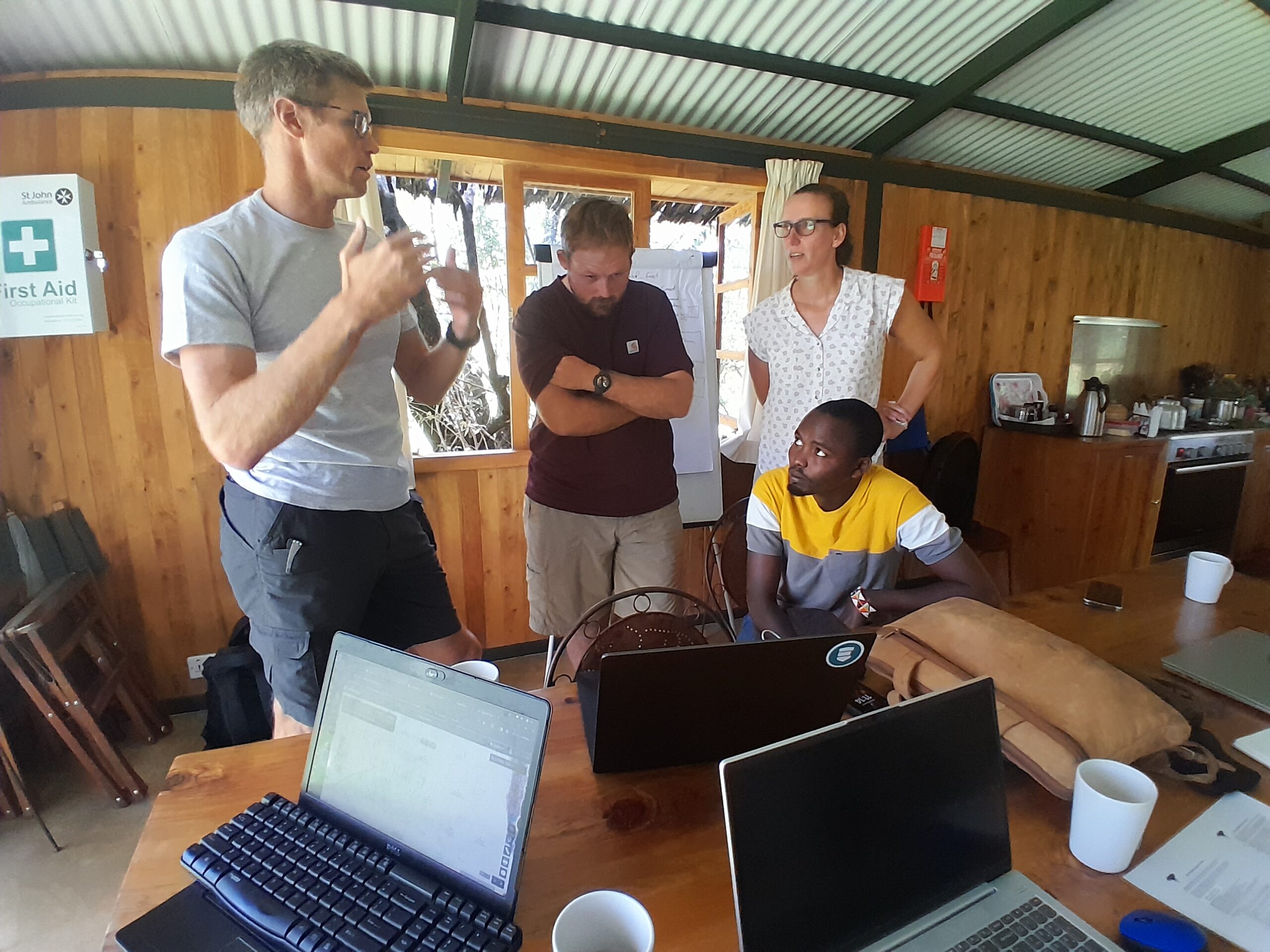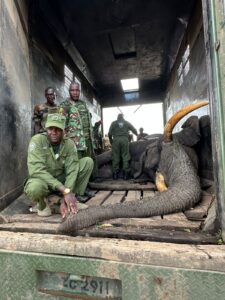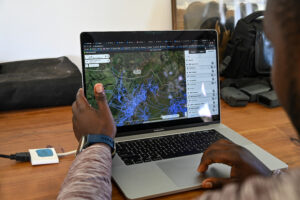 One of Mara Elephant Project’s key objectives is to share our knowledge with other conservation organizations so that we can all work together to protect wildlife and wild spaces in Kenya and Africa. EarthRanger is a software solution helping conservationists with security, ecological management, research, and human-wildlife coexistence by streamlining vast troves of data into a system giving those on the frontlines the information they need to make informed decisions for wildlife conservation. MEP uses EarthRanger to unlock the power of all the data we collect — locations of elephants, rangers and vehicles, past poaching incidents, weather and many more — to predict threats and plan landscapes for the future. MEP Director of Research and Conservation Dr. Jake Wall is an early architect of EarthRanger, and we’ve been using the software since 2019 putting us in a unique position to share our best practices with other organizations to support their conservation efforts.
One of Mara Elephant Project’s key objectives is to share our knowledge with other conservation organizations so that we can all work together to protect wildlife and wild spaces in Kenya and Africa. EarthRanger is a software solution helping conservationists with security, ecological management, research, and human-wildlife coexistence by streamlining vast troves of data into a system giving those on the frontlines the information they need to make informed decisions for wildlife conservation. MEP uses EarthRanger to unlock the power of all the data we collect — locations of elephants, rangers and vehicles, past poaching incidents, weather and many more — to predict threats and plan landscapes for the future. MEP Director of Research and Conservation Dr. Jake Wall is an early architect of EarthRanger, and we’ve been using the software since 2019 putting us in a unique position to share our best practices with other organizations to support their conservation efforts.
Thanks to support from the Basecamp Explorer Foundation, MEP hosted team members from the Kenya Bird of Prey Trust (KBOPT) for an EarthRanger workshop to support their efforts to monitor raptor nest sites across the Mara. Raptors are one the most threatened species groups within the Mara, and their presence and successful breeding is a great indicator of ecosystem health. KBOPT believes that through nest monitoring, they not only help protect vulnerable raptor nest sites, but can also use the data collected to inform conservation management at both local and regional levels.
The workshop established KBOPT’s EarthRanger system and created workflows for inputting data. “Nest monitoring consists of three components,” says Director of Raptor Conservation Southern Kenya Stratton Hatfield. “The first is nest detection and identification and the second is nest checks. These two steps we hope to use EarthRanger to streamline data collection and organization.” For the third step, MEP will soon implement an Ecoscope workflow for KBOPT to analyze the data. “EarthRanger and Ecoscope are vital to the success of this work as they allow for streamlined data collection, organized database management, quick data sharing, and efficient data analysis pipelines,” says Hatfield.
“Working with MEP on implementing ER has been fantastic! The MEP team has been extremely accommodating. They have listened to our needs and are working hard to make sure that our vision for data collection and analysis becomes a reality.”
Director of Raptor Conservation Southern Kenya Stratton Hatfield
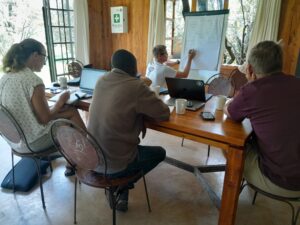 The implementation and training is supported by a grant from the Basecamp Explorer Foundation-Kenya, a partner that works with community based organizations like MEP to safeguard nature. This is just one of many activities MEP will undertake to expand our conservation efforts all with Basecamp Explorer Foundation’s support.
The implementation and training is supported by a grant from the Basecamp Explorer Foundation-Kenya, a partner that works with community based organizations like MEP to safeguard nature. This is just one of many activities MEP will undertake to expand our conservation efforts all with Basecamp Explorer Foundation’s support.
